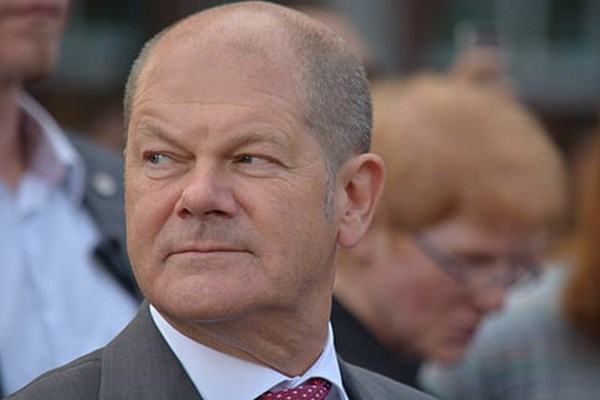German Chancellor Scholz calls for continued support for Ukraine during Washington visit
German Chancellor Olaf Scholz, during his visit to Washington, addressed American senators, calling for further assistance to Ukraine. "It was great to speak with members of the US Senate from both parties again. Ukraine needs our united support to defend itself against Russian aggression," the chancellor wrote early on Friday, February 9, on social network X.
Scholz arrived in the United States the day before. This marks his third visit to Washington as the head of the German government. Today, he will be welcomed by US President Joe Biden at the White House. Their tête-à-tête meeting is scheduled for one hour in the afternoon. The primary topic of their conversation is expected to be the support for Ukraine. Overall, Scholz will spend approximately 24 hours in the US capital.
A few days ago, the European Union decided to provide support to Ukraine worth 50 billion euros. Scholz was active in advocating for this, especially given the domestic political situation in Washington. "It's also a positive signal to the US," the chancellor had noted earlier.
President Biden has repeatedly assured Kyiv that he will back its defense against Russian aggression "for as long as it takes." However, Republicans in the US Congress continue to block the allocation of additional funds to Ukraine for its defense against Russian aggression. "The clock is ticking every week, every month that passes without new aid," emphasized Biden, indicating that this plays into the hands of Russian President Putin.
On February 7, Republicans in the Senate failed to pass a bill that included new aid for Ukraine and Israel and measures to tighten the country's immigration laws. The document, earlier approved by both Democrats and Republicans, did not secure the necessary 60 votes in the Senate.
Now, the Democrats are attempting to push through Congress a separate bill with support for Ukraine and Israel, which includes an allotment of 60 billion dollars for Kyiv and 14.1 billion dollars for Israel's security assistance. The bill overcame its first hurdle in the Senate on February 8. However, even if it passes the Democrat-controlled Senate, it risks being rejected by the House of Representatives, where Republicans hold the majority. Many right-wing Republicans, including those influenced by former President Trump, oppose aid to Ukraine.
